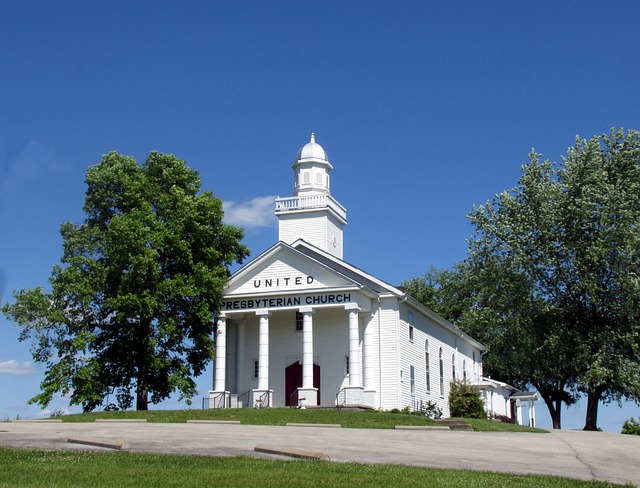Presbyterians believe in adult baptism.
Table of Contents
The Importance of Adult Baptism in Presbyterian Beliefs
Do Presbyterians believe in adult baptism? This is a question that often comes up when discussing Presbyterian beliefs. While there may be some variations among individual congregations, the general consensus among Presbyterians is that adult baptism is an important part of their faith.
Presbyterians believe that baptism is a sacrament that signifies and seals God’s covenant of grace with his people. It is a visible sign of the inward grace that God bestows upon believers. In Presbyterian theology, baptism is seen as a means of grace, a way in which God imparts his blessings to his people.
One of the key reasons why adult baptism is important in Presbyterian beliefs is the emphasis on personal faith and commitment. Presbyterians believe that baptism is not just a ritual or a tradition, but a public declaration of one’s faith in Jesus Christ. It is a way for individuals to publicly profess their belief in Christ and their commitment to follow him.
In the Presbyterian tradition, baptism is seen as a response to God’s grace and a symbol of the believer’s union with Christ. It is a way for individuals to identify themselves as part of the body of Christ and to participate in the life of the church. Adult baptism is seen as a conscious decision made by individuals who have come to a personal faith in Christ and are ready to publicly declare their commitment to him.
Another reason why adult baptism is important in Presbyterian beliefs is the understanding of baptism as a sign of repentance and forgiveness of sins. Presbyterians believe that baptism is a way for individuals to symbolically wash away their sins and start a new life in Christ. It is a way for believers to publicly acknowledge their need for forgiveness and their desire to turn away from sin.
Presbyterians also believe that baptism is a means of grace that strengthens and sustains believers in their faith journey. It is not just a one-time event, but an ongoing process of growth and transformation. Through baptism, believers are united with Christ and receive the Holy Spirit, who empowers them to live a life of faith and obedience.
While adult baptism is the norm in Presbyterian churches, there are also provisions for the baptism of infants. Presbyterians believe that infants are included in God’s covenant of grace and can receive the blessings of baptism. Infant baptism is seen as a sign of God’s love and care for children, and a way for parents to dedicate their children to God and commit to raising them in the faith.
In conclusion, adult baptism is an important part of Presbyterian beliefs. It is seen as a public declaration of faith, a sign of repentance and forgiveness, and a means of grace for believers. While there may be variations among individual congregations, the general consensus among Presbyterians is that adult baptism is a significant and meaningful practice in their faith. Whether through adult or infant baptism, Presbyterians believe that baptism is a visible sign of God’s covenant of grace and a way for believers to participate in the life of the church.
Understanding the Biblical Basis for Adult Baptism in Presbyterianism

Do Presbyterians believe in adult baptism? This is a question that often comes up when discussing the beliefs and practices of the Presbyterian Church. To understand the answer to this question, it is important to delve into the biblical basis for adult baptism in Presbyterianism.
In Presbyterianism, baptism is seen as a sacrament that signifies and seals our union with Christ. It is a visible sign of God’s grace and a means of grace through which believers are united with Christ and incorporated into his body, the Church. While the Presbyterian Church recognizes the validity of infant baptism, it also upholds the practice of adult baptism.
The biblical basis for adult baptism in Presbyterianism can be found in the New Testament. In the book of Acts, we see numerous examples of adult baptism. For instance, in Acts 2:38-41, Peter preaches to the crowd on the day of Pentecost, urging them to repent and be baptized. The text explicitly states that those who received his message were baptized, and about three thousand people were added to their number that day.
Another example can be found in Acts 8:26-40, where Philip encounters an Ethiopian eunuch who is reading from the book of Isaiah. Philip explains the passage to him, and the eunuch expresses his desire to be baptized. Philip then baptizes him, and the eunuch goes on his way rejoicing.
These biblical examples demonstrate that adult baptism was practiced in the early Church. Presbyterians believe that these examples provide a solid foundation for the practice of adult baptism today. They argue that baptism is not just a symbolic act but a means of grace through which believers publicly profess their faith and are united with Christ.
Furthermore, Presbyterians emphasize the importance of personal faith and repentance in the act of baptism. They believe that baptism should be reserved for those who have made a conscious decision to follow Christ and have personally experienced God’s saving grace. This is why adult baptism is seen as a significant step in the faith journey of believers.
It is important to note that while Presbyterians uphold the practice of adult baptism, they do not view it as a requirement for salvation. They believe that salvation is by grace alone through faith alone in Christ alone. Baptism is seen as an outward expression of an inward reality, a public declaration of one’s faith in Christ.
In conclusion, Presbyterians do believe in adult baptism. They see it as a biblical practice that is rooted in the New Testament examples of adult baptism. Baptism is viewed as a sacrament that signifies and seals our union with Christ and is a means of grace through which believers are united with Christ and incorporated into his body, the Church. While infant baptism is recognized as valid, adult baptism is seen as a significant step in the faith journey of believers, where personal faith and repentance are expressed. Ultimately, Presbyterians view baptism as an outward expression of an inward reality, a public declaration of one’s faith in Christ.
Exploring the Historical Context of Adult Baptism in Presbyterianism
Do Presbyterians believe in adult baptism? This is a question that often comes up when discussing the beliefs and practices of the Presbyterian Church. To understand the answer to this question, it is important to explore the historical context of adult baptism in Presbyterianism.
In the early days of the Presbyterian Church, infant baptism was the norm. This practice was rooted in the belief that baptism was a sacrament of initiation into the Christian faith and that it should be administered to infants as a sign of God’s grace and covenant with the child. However, as time went on, some Presbyterians began to question this practice and advocate for adult baptism.
The movement towards adult baptism in Presbyterianism can be traced back to the Reformation. During this time, many Protestant reformers, including John Calvin, emphasized the importance of personal faith and individual conversion. They believed that baptism should be a public declaration of one’s faith and a conscious decision made by the individual.
This emphasis on personal faith and individual conversion had a significant impact on the beliefs and practices of Presbyterianism. As a result, some Presbyterian churches began to adopt adult baptism as their preferred mode of baptism. They argued that baptism should be reserved for those who have made a personal profession of faith and are able to understand the significance of the sacrament.
However, it is important to note that not all Presbyterian churches have embraced adult baptism. There are still many Presbyterian churches that practice infant baptism as a sign of God’s grace and covenant with the child. These churches believe that baptism is a means of grace and that it should be administered to infants as a sign of their inclusion in the community of faith.
So, do Presbyterians believe in adult baptism? The answer is not a simple yes or no. It depends on the specific beliefs and practices of the individual Presbyterian church. Some churches may practice adult baptism exclusively, while others may practice infant baptism or offer both options to their members.
Regardless of the mode of baptism, the Presbyterian Church places a strong emphasis on the importance of faith and personal commitment to Christ. Whether one is baptized as an infant or as an adult, the Presbyterian Church believes that baptism is a visible sign of God’s grace and a means of grace through which individuals are united with Christ and the community of faith.
In conclusion, the question of whether Presbyterians believe in adult baptism is a complex one. While some Presbyterian churches have embraced adult baptism as their preferred mode of baptism, others continue to practice infant baptism. Regardless of the mode of baptism, the Presbyterian Church emphasizes the importance of personal faith and commitment to Christ. Ultimately, the decision of whether to practice adult or infant baptism is left to the individual church and its members.
Addressing Common Misconceptions about Adult Baptism in Presbyterianism
Do Presbyterians believe in adult baptism? This is a common question that often arises when discussing the beliefs and practices of the Presbyterian Church. Many people have misconceptions about the Presbyterian stance on baptism, particularly when it comes to the age at which it is administered. In this article, we will address some of these misconceptions and shed light on the Presbyterian view of adult baptism.
First and foremost, it is important to understand that the Presbyterian Church believes in the sacrament of baptism. Baptism is seen as a visible sign of God’s grace and a means of initiation into the Christian community. However, there is some variation within the Presbyterian tradition regarding the age at which baptism is administered.
Contrary to popular belief, Presbyterians do not exclusively practice infant baptism. While infant baptism is indeed a common practice within the Presbyterian Church, it is not the only form of baptism that is recognized. In fact, many Presbyterian churches also practice adult baptism.
The decision to baptize an adult is typically based on the individual’s personal faith and desire to publicly profess their commitment to Christ. In Presbyterian theology, baptism is not seen as a requirement for salvation but rather as a response to God’s grace. Therefore, adults who have not been baptized as infants may choose to be baptized later in life as a way of publicly declaring their faith.
It is worth noting that the Presbyterian Church does not view baptism as a one-time event. Instead, it is seen as a lifelong journey of faith. This means that even if someone has been baptized as an infant, they are still encouraged to continue growing in their faith and deepening their understanding of what it means to be a follower of Christ.
Another misconception about adult baptism in Presbyterianism is that it is only reserved for those who have converted from another faith or have had a dramatic spiritual experience. While these situations certainly warrant consideration for adult baptism, they are not the only reasons why someone might choose to be baptized as an adult.
In Presbyterian theology, baptism is seen as a means of grace that is available to all believers, regardless of their background or spiritual journey. Therefore, even those who have grown up in the church and have been active participants in the faith community may choose to be baptized as adults as a way of reaffirming their commitment to Christ and the church.
In conclusion, Presbyterians do believe in adult baptism. While infant baptism is a common practice within the Presbyterian Church, it is not the only form of baptism that is recognized. Adult baptism is also practiced and is typically based on an individual’s personal faith and desire to publicly profess their commitment to Christ. Baptism is seen as a lifelong journey of faith, and it is available to all believers, regardless of their background or spiritual journey. So, if you are considering adult baptism as a Presbyterian, know that you are not alone in your desire to publicly declare your faith and commitment to Christ.
Conclusion
Yes, Presbyterians believe in adult baptism.


